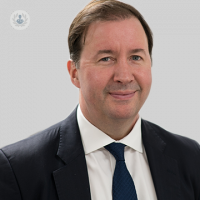Is diverticular disease serious?
Written by:A diverticulum is a pouch, and diverticulosis (or diverticular disease) refers to outpouchings in the wall of the colon. These pouches occur at weak points in the muscular wall – most people are not aware they have this common condition, which is very frequent in the western world. It is thought to be associated with our diet, which typically has low fibre or roughage content.

Is diverticular disease serious?
Having diverticular disease in itself is not dangerous and has no known links to cancer, however, some patients can develop symptoms such as bleeding or change in bowel habit, which necessitates bowel examination (colonoscopy or virtual colonoscopy) to check that there is no bowel cancer or polyps as the symptoms of both can be similar.
Some patients with diverticular disease can develop inflammation (diverticulitis) that in moderate or severe cases do not settle alone and can require antibiotics, or sometimes hospital admission. Those admitted to the hospital may undergo CT scans to check there are no fluid collections requiring drainage.
Complications can occur with diverticular disease, such as stricture after repeated attacks of inflammation, haemorrhage, perforation requiring emergency surgery or fistulation into another organ. In some of these cases, patients can require major surgery either on a planned or emergency basis to remove the affected part of the colon.
What foods should you avoid if you have diverticular disease?
Avoid foods low in fibre so thus drink plenty of water and eat plenty of fruit, vegetables and brown bread (bran) etc. to minimise constipation which is considered to propagate diverticulosis.
What is the best treatment for diverticular disease?
Most patients need no treatment and simple reassurance that they do not have a serious problem and need to stick to the diet as above. Patients with complications or repeated attacks of diverticulitis will need to be reviewed by a colorectal surgeon to evaluate the best option for them in terms of diet, antibiotics, drainage procedures or surgery, which increasingly can be undertaken using keyhole or minimally invasive techniques.


